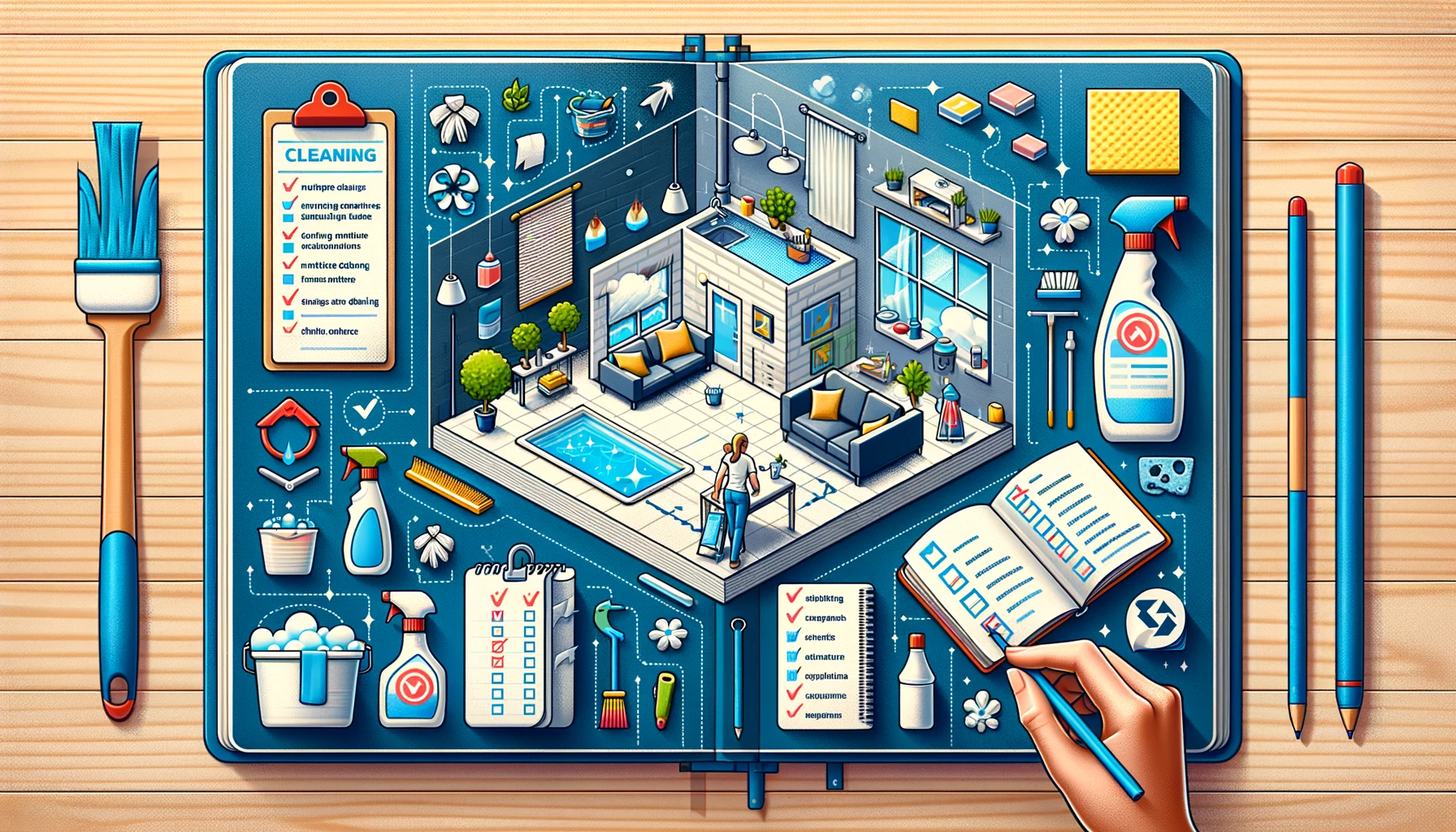Maintaining a clean home is not just about aesthetics; it’s about creating a healthy and comfortable living environment for you and your family.
However, with the hustle and bustle of daily life, cleaning can sometimes feel overwhelming.
That’s where efficient cleaning strategies come into play, transforming daunting tasks into manageable activities.
Let’s explore how you can streamline your cleaning process, save time, and still enjoy a sparkling home.
Planning Your Cleaning Schedule
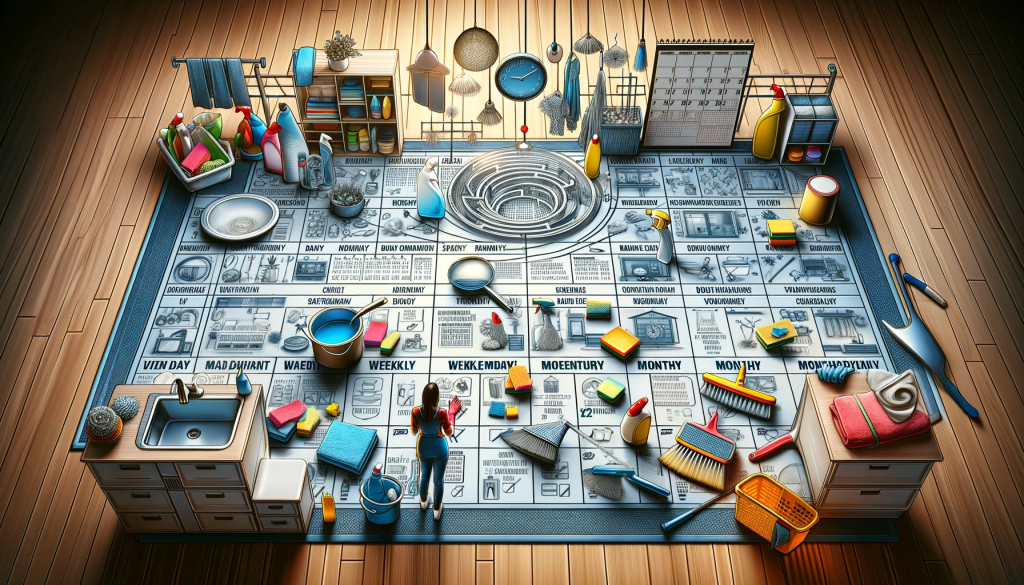
The foundation of efficient home cleaning lies in a well-structured schedule.
By breaking down tasks into daily, weekly, and monthly activities, you can maintain a clean home without dedicating entire days to cleaning.
For instance, daily tasks might include dishes and countertop wiping, while weekly tasks could cover vacuuming and bathroom cleaning.
Monthly tasks might involve deeper cleaning activities like window washing or clearing out the refrigerator.
Decluttering Before Cleaning
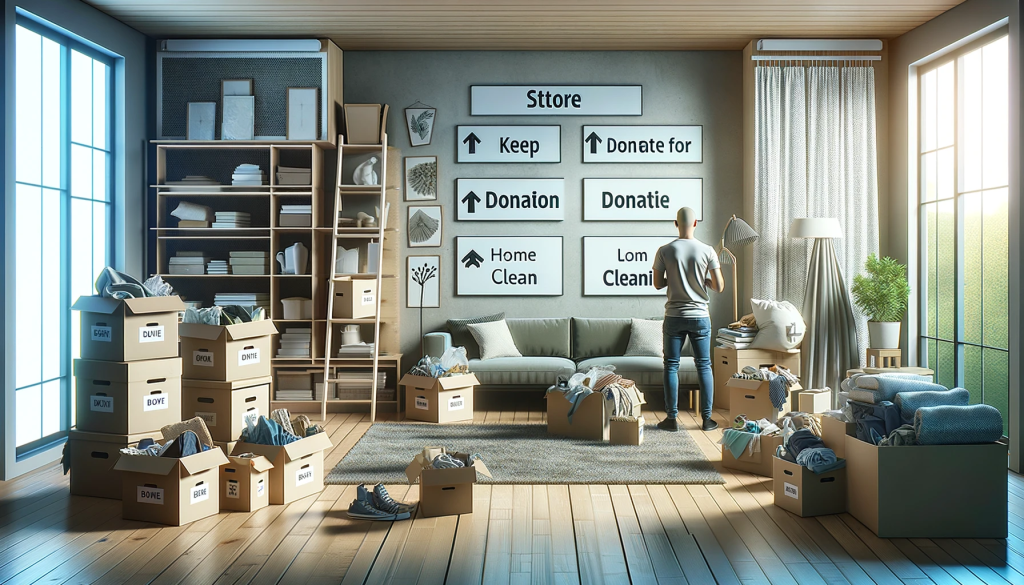
A cluttered home complicates the cleaning process.
Before you even start cleaning, take some time to declutter.
Adopting a minimalist approach not only makes cleaning easier but also contributes to a more peaceful living space.
Regularly sort through your belongings and donate, sell, or discard items you no longer need or use.
This reduces dust-gathering surfaces and simplifies your cleaning routine.
Using the Right Tools and Supplies
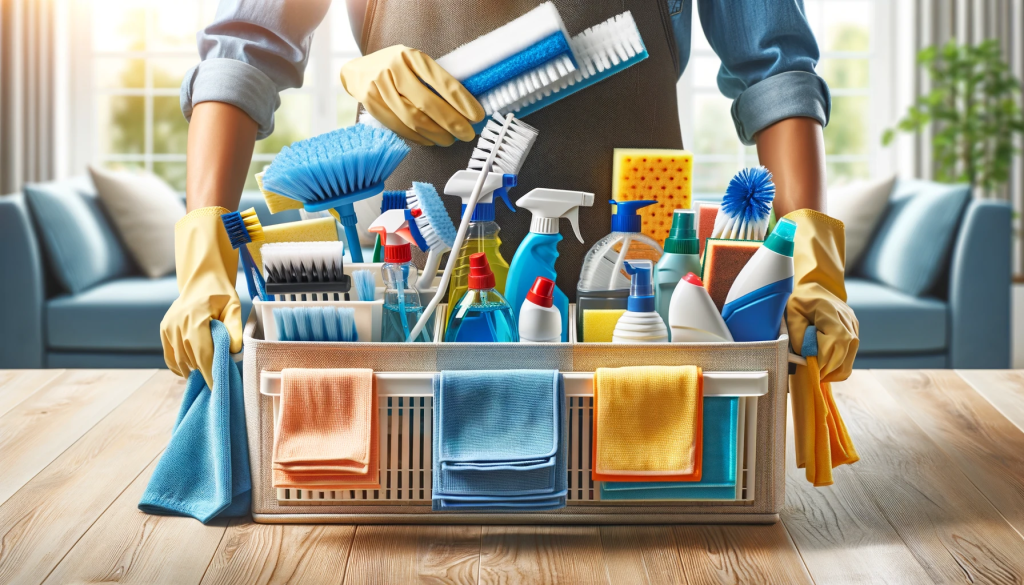
Efficiency in cleaning is often about using the right tools for the job.
Invest in quality cleaning supplies and tools that are designed for specific tasks.
For example, microfiber cloths are great for dusting and cleaning surfaces without leaving streaks.
Keeping a cleaning caddy stocked with all your essentials can save time and prevent unnecessary interruptions.
Implementing Time-Saving Cleaning Techniques
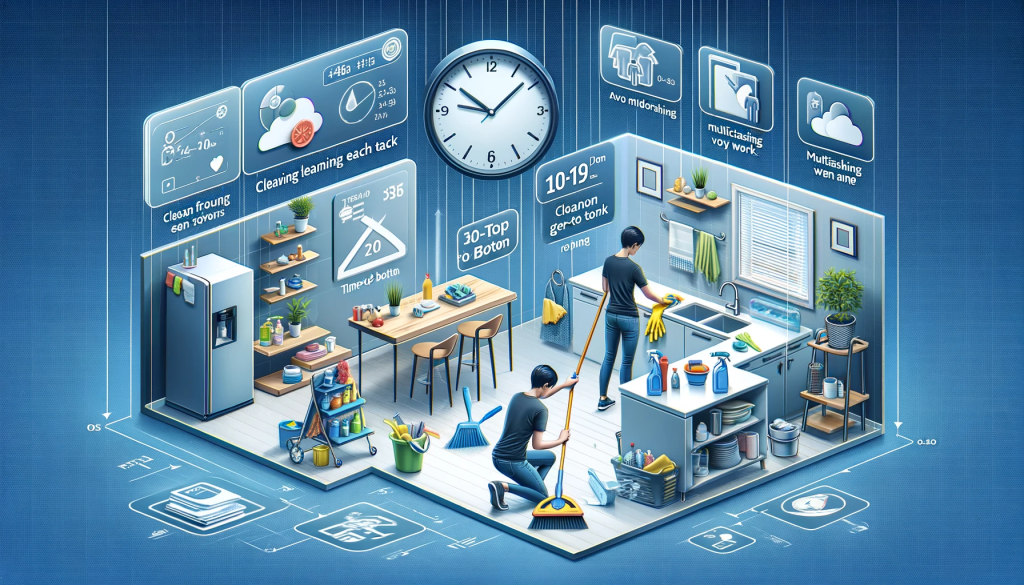
Adopting specific techniques can make cleaning quicker.
For example, cleaning from top to bottom ensures you don’t have to re-clean surfaces, and focusing on multitasking-friendly tasks can optimize your time.
Setting a timer for each task can also prevent you from getting bogged down in details, keeping your cleaning efforts concise and focused.
Prioritizing Cleaning Tasks
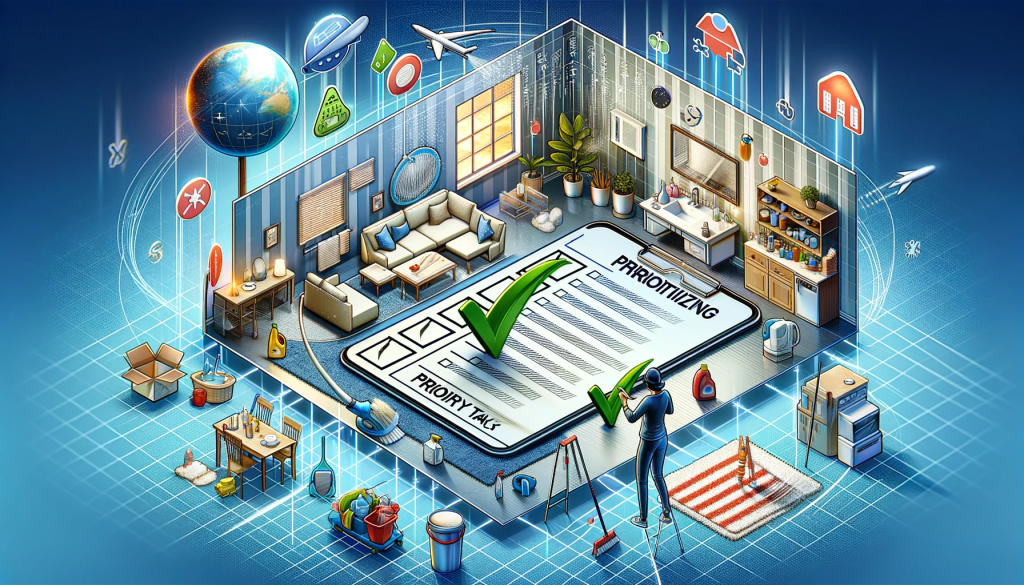
Not all cleaning tasks are created equal.
Prioritize your cleaning activities based on urgency and effort.
Tackle high-traffic areas and tasks that have the most significant impact on your living environment first.
This ensures that even if you run out of time or energy, the most crucial areas of your home remain clean.
Making Cleaning a Family Affair
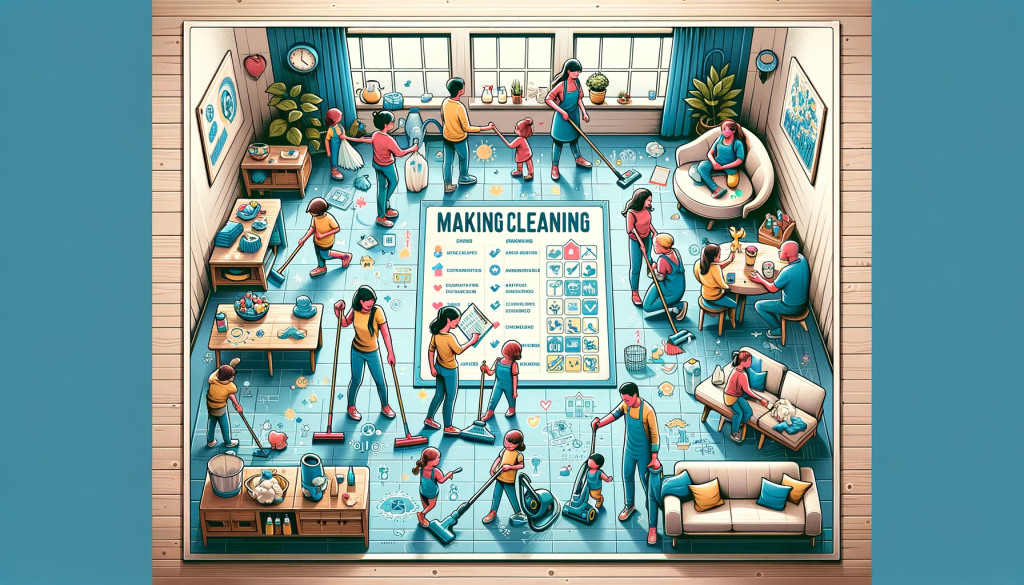
Involving family members in the cleaning process can significantly reduce the workload.
Assign age-appropriate cleaning tasks to each family member, turning cleaning into a team effort.
This not only lightens your load but also instills a sense of responsibility and teamwork in all household members.
Research-Backed Benefits of a Clean Home

The benefits of a clean home extend beyond the physical.
Studies have shown that cleanliness plays a crucial role in mental health and productivity.
A study published in the “Personality and Social Psychology Bulletin” found that individuals who described their living spaces as cluttered were more likely to feel stressed and fatigued.
Keeping your home clean can therefore contribute to a happier and more productive lifestyle.
Maintaining Cleanliness Daily
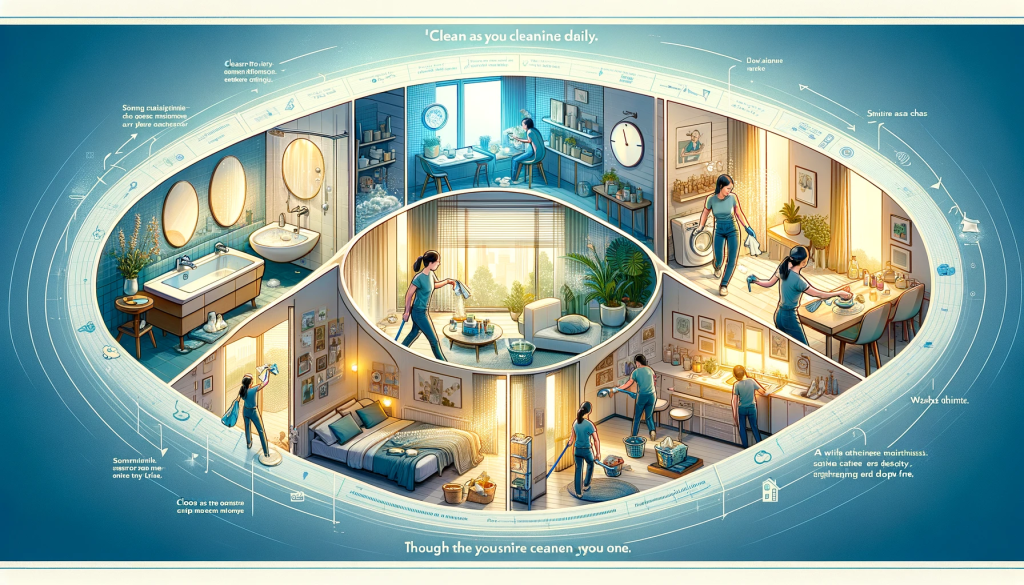
Daily maintenance is key to preventing the build-up of dirt and clutter.
Adopt the “clean as you go” principle to keep your home tidy with minimal effort.
This could mean wiping down the shower after use, washing dishes immediately after meals, or doing a quick nightly tidy-up before bed.
Conclusion
Efficient home cleaning strategies can transform the way you approach household chores, making it possible to enjoy a clean and healthy home without sacrificing your entire weekend.
By planning, decluttering, using the right tools, and involving the whole family, you can streamline your cleaning process and free up time for the things that matter most.
